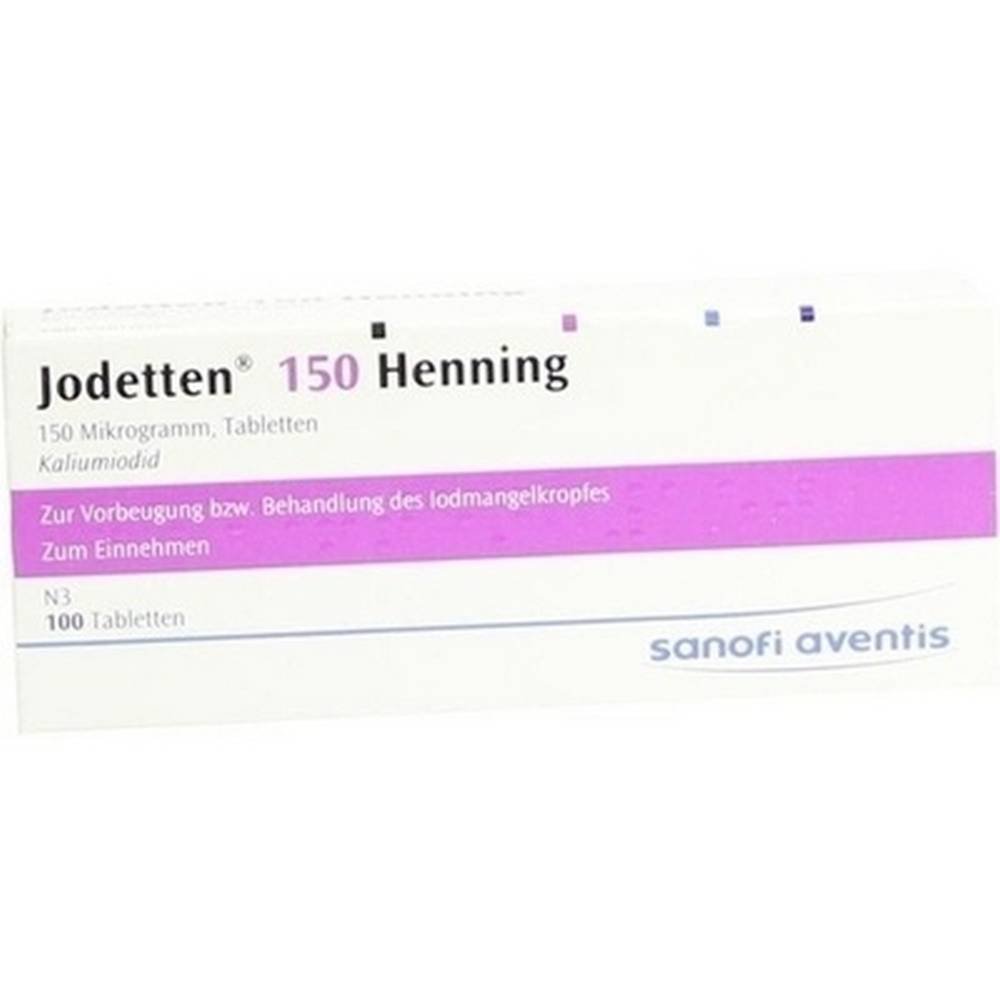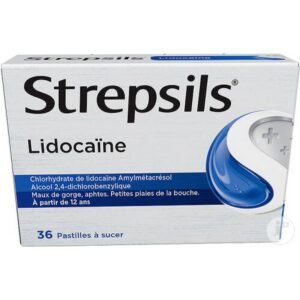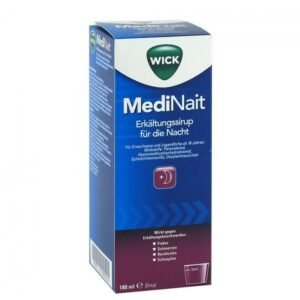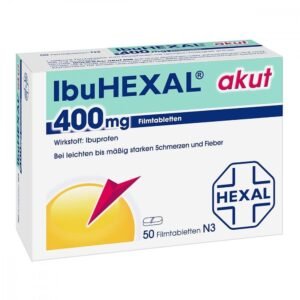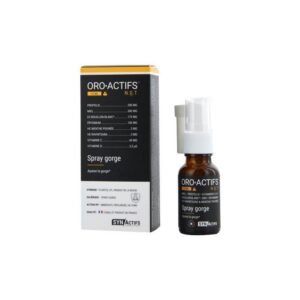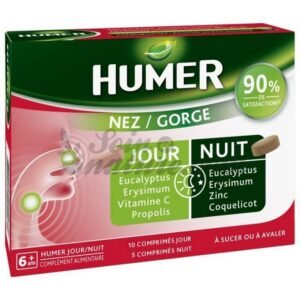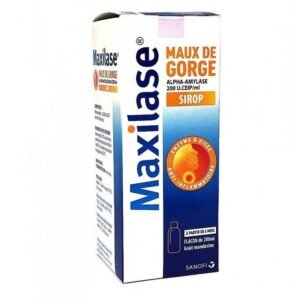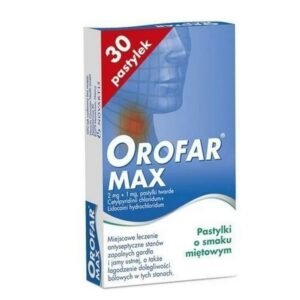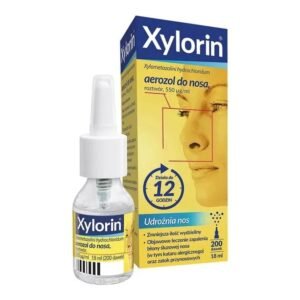Jodetten ® 150 Henning
Active substance: potassium iodide.
Areas of application:
Jodetten 100/150/200 Henning: Prophylaxis of iodine deficiency (e.g. for the prophylaxis of endemic goiter and after resection of iodine deficiency goiters). Treatment of diffuse euthyroid goiter in neonates, children, adolescents and young adults. Jodetten Henning 1 x weekly: prophylaxis of endemic iodine deficiency goiter, recurrence prophylaxis after drug or surgical therapy of endemic goiter. Therapy of euthyroid goiter in children, adolescents and young adults. Pharmacy only.
Detailed instructions for JODETTEN 150 Henning tablets, 100 pcs
field of use
• The drug is a thyroid drug. It contains potassium iodide as an active ingredient and is used to treat goiter and at the same time supplement the iodine requirement.
• It is used for:
• Prevention of iodine deficiency (e.g. to prevent goiter in iodine-deficiency areas and after removal of an iodine-deficiency goiter),
• Treatment of goiter (diffuse euthyroid goiter) in newborns, children, adolescents and young adults.
Active substances / ingredients / ingredients
196 µg potassium iodide
150 µg iodide ion
cellulose, microcrystalline excipient (+)
crospovidone excipient (+)
hypromellose excipient (+)
magnesium carbonate, light basic excipient (+)
sodium cyclamate excipient (+)
castor oil, hydrogenated excipient (+)
Contraindications
• The drug must not be taken
• if you are allergic (hypersensitive) to potassium iodide or any of the other ingredients of the medicine,
• with manifest hyperthyroidism,
• in the case of latent hyperthyroidism at a dosage of more than 150 µg iodide/day,
• in benign, hormone-forming nodules or uncontrolled hormone-forming areas of the thyroid gland in a dosage of 300 – 1000 µg iodide/day (except for preoperative treatment),
• in hypocomplementemic vasculitis (inflammation of the vessels) and
• in dermatitis herpetiformis Duhring (chronic skin inflammation).
dosage
• Always take the medicine exactly as directed. Please check with your doctor or pharmacist if you are not sure.
• Unless otherwise prescribed by the doctor, the usual dose is:
• Prevention of goiter in iodine deficiency:
• Babies and children: Half a tablet (equivalent to 75 µg iodide(ions)) once a day.
• Adolescents and adults: One tablet (equivalent to 150 µg iodide(ions)) once a day.
• Pregnancy and lactation: Tablets with 200 µg iodide(ions) are available for this purpose.
• Prevention of regrowth of goiter after completion of drug treatment or after surgery for iodine-deficiency goiter:
• One tablet (equivalent to 150 µg iodide(ions)) once a day.
• Treatment of iodine deficiency goiter:
• Newborns, children and adolescents: One tablet (equivalent to 150 µg iodide(ions)) once a day.
• Younger adults: Two to three tablets (equivalent to 300 – 450 µg iodide(ions)) once a day.
• duration of use
• The preventive administration of the drug must generally be carried out over a period of years, often for life.
• 2 – 4 weeks are usually sufficient to treat goiter in newborns, and 6 – 12 months or more are usually required in children, adolescents and adults. The duration of the usage will be decided by the medicating doctor.
• If you take more than you should
• Please contact your doctor immediately, he will decide on any necessary measures.
• If you forget to take a dose
• Do not take a double dose to make up for a forgotten dose.
• If you stop taking the medicine
• If you stop taking it or prematurely, e.g. B. due to a side effect, please contact your doctor.
• If you have any further questions on the use of the medicine, ask your doctor or pharmacist.
revenue
• Take the medicine after a meal with enough liquid (e.g. half a glass of water). Taking it after mixing it with food (e.g. soup) or a drink is particularly recommended for children. The tablets disintegrate easily and can therefore also be dissolved in juice or water. This type of intake is particularly recommended for infants and children.
patient notes
• Take special care when taking the drug
• Before the planned intake of the drug, it should be checked whether an overactive thyroid gland or a nodular goiter is present or known. In the case of existing nodular goiter, taking the pills could induce an overactive thyroid gland.
• If you are suspected of having an iodine-mediated hypersensitivity reaction, a differentiated approach is required. Hypersensitivity reactions to iodine-containing X-ray contrast media or allergic reactions to iodine-containing foods are not usually triggered by the iodine content.
• On the other hand, if you are aware of the rare reaction to an iodine-containing drug, e.g. B. hypocomplementemic vasculitis (inflammation of the vessels) or dermatitis herpetiformis Duhring (chronic skin inflammation), you must not be treated with iodine-containing medication, since higher iodine doses cause the underlying disease to worsen.
• Elderly people
• In older patients with a long-standing goiter, iodine-related hyperthyroidism can occur in isolated cases.
• Driving and using machines:
• There is no evidence that iodide affects the ability to drive, use machines or work without a firm footing.
pregnancy
• Ask your doctor or pharmacist for advice before taking/using any medicine. Iodide and preparations containing iodine should only be taken after a benefit/risk assessment and on the express prescription of a doctor.
• pregnancy
• Both an iodine deficiency and an iodine overdose during pregnancy can damage the unborn child.
• During pregnancy, there is an increased need for iodine, so that an adequate supply of iodine is particularly important. There are no known risks associated with the use of iodine preparations in doses of up to 200 µg daily.
• Since iodine crosses the placenta and reaches the unborn child, higher doses should only be taken in cases of clinically proven iodine deficiency in order to avoid hypothyroidism and goitre in the unborn child.
• lactation
• There is an increased need for iodine during breastfeeding, so that an adequate supply of iodine is particularly important. There are no known risks associated with the use of iodine preparations in doses of up to 200 µg daily. Iodine is excreted in breast milk and accumulates there.
For risks and side effects, read the leaflet and ask your doctor or pharmacist.
pharmacy Company: Sanofi-Aventis Deutschland GmbH, 65926 Frankfurt am Main.
Status: December 2018 (SADE.IOKD.19.03.0601)
For risks and side effects, read the leaflet and ask your doctor or pharmacist.
Jodetten 150 Henning 150 micrograms (pack size: 100 pcs) are pharmacy-only and can be purchased in your mail-order pharmacy apodiscounter.
Miscellaneous
– A hypothyroidism is usually no reason for the use of Jodid, with the exception of the hypothyroidism based on severe iodine deficiency or misuse of iodine. In all other cases, thyroid hormone preparations are necessary to compensate for the hormone deficiency.
– Before the planned use of iodine and medicines containing iodine, it should be checked whether there is an overactive thyroid gland or nodular enlargement of the thyroid gland.
– This applies above all to adults and before a planned iodine treatment with daily amounts of 300 mg iodine and more, since in this situation the possibility of triggering an overactive thyroid gland must be taken into account.
– The intake of iodine (especially in high amounts) or iodine-containing medicines can make planned radioiodine treatment of hyperthyroidism, benign thyroid tumors and malignant thyroid tumors impossible.
– If a malignant tumor of the thyroid gland is suspected, the intake of iodine in any form should be avoided.
– The intake of high amounts of iodine can affect the examination of the thyroid gland and lead to errors.
Buy [current_product_title]
Price of [current_product_title]
Order online [current_product_title]
Where to buy [current_product_title]
Cost of [current_product_title]
Cheapest price for [current_product_title]
Find in pharmacy [current_product_title]
Buy online [current_product_title]
Buy [current_product_title]
Price of [current_product_title]
Order online [current_product_title]
Where to buy [current_product_title]
Cost of [current_product_title]
Cheapest price for [current_product_title]
Find in pharmacy [current_product_title]
Buy online [current_product_title]
Product properties
| Weight | 0,1 kg |
|---|---|
| Form | |
| Country | |
| Manufacturer | |
| Article | DEMAINVITA78 |

